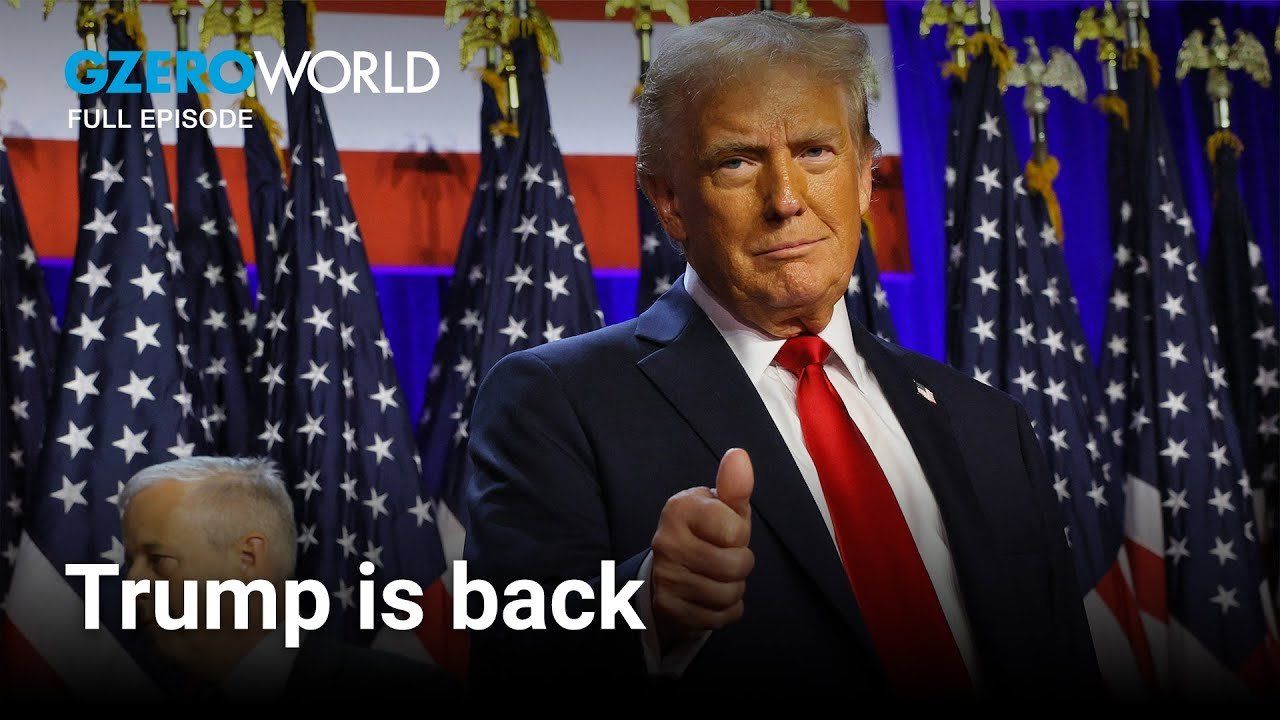
On this episode of GZERO World, Ian Bremmer unpacks the implications of Donald Trump’s decisive election win, marking his historic return to office and the GOP's comprehensive control over government (assuming they hold onto the House). Despite polls suggesting a razor-close election, Trump won with strong support across critical swing states, including Pennsylvania, where voter shifts were significant even in traditionally Democratic strongholds like Philadelphia. Bremmer discusses Nov 5 and its wide range of implications with Vanderbilt historian Nicole Hemmer and Wall Street Journal correspondent Molly Ball. How did Trump’s return signal a change election? How much of it was driven by voters' discontent with inflation and immigration, and how much was simply the appeal of a populist alternative to the status quo.
The conversation highlights Trump’s longstanding opposition to globalism and his strategy to reshape America’s place on the world stage. With the GOP controlling the presidency, Senate, and likely the House, Trump's second term could bring sweeping policy changes, including a push to consolidate executive power and reduce judicial and institutional independence. Reflecting on the stakes, Molly Ball comments, “If there are not those barriers before him, what is he willing to do? What norms and traditions, not to say laws, is he willing to violate in order to pursue his goals?” Hemmer adds, “The erosion of representative democracy…has accelerated over the past 10 years,” emphasizing the risks of unchecked power. They also examine the Democratic Party’s struggle to resonate with working-class voters across racial lines and its internal debate over progressive versus centrist policies. With both parties facing pressure, there remains an enduring tension between America's democratic ideals and the growing appetite for anti-establishment reform.
GZERO World with Ian Bremmer, the award-winning weekly global affairs series, airs nationwide on US public television stations (check local listings).
New digital episodes of GZERO World are released every Monday on YouTube. Don't miss an episode: subscribe to GZERO's YouTube channel and turn on notifications (🔔).